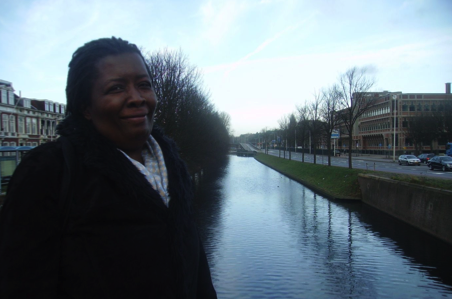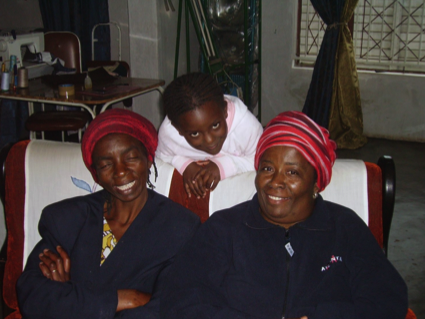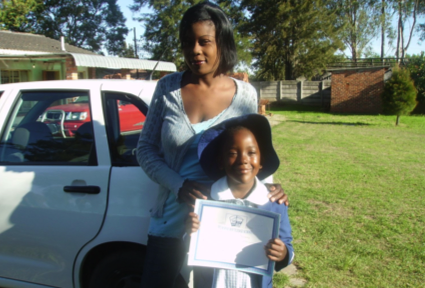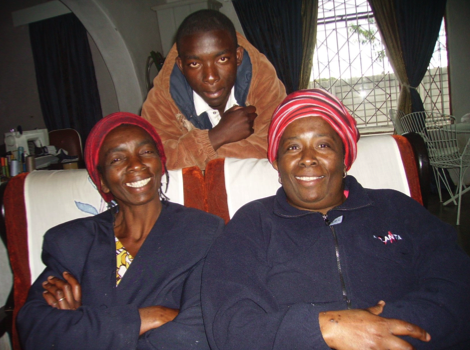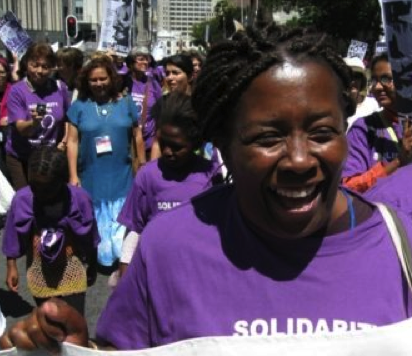This photostory was produced by Tendayi and Cynthia Kureya; PANOS; SAFAIDS Zimbabwe and photography by Tendayi Kureya
My name is Martha. My home is in Zimbabwe and I live in Harare our capital city. I am a mother of two daughters. I have been HIV positive for more than seven years.
Emerging issue: Self-Stigma
It took me over two years to get tested for HIV. I kept asking my doctor to ascertain my HIV status during that time but he dismissed the idea alleging that I was being paranoid. I later went to a city health department clinic where they would not test me for HIV either, but continuously repeated tests for TB, which all turned out to be negative. The facility doctors however insisted I start on TB medication anyway. The fact that I had severe side-effects from the medication was brushed aside as minor, and they insisted that I continue on that treatment.
It took a lot of guts to find another doctor for a third opinion without being referred by a health professional. By that time I was very physically and emotionally weak. The general practitioner took their time, gave me counselling (which I had never had before), and immediately tested me for HIV.
The test showed I was infected. The doctor provided post-test counselling and introduced me to the concept of positive living. This included advice on proper and adequate nutrition, screening for and treatment of opportunistic infections, and maintaining a positive attitude. Antiretroviral treatment was not readily available in Zimbabwe at that time.
How it affected me, my family and my community
I realised I was pregnant a month after taking the HIV test. The pregnancy had already progressed to four months. The messages I got were that it was in my best interests to terminate the pregnancy to maintain my health and my life. There was so much pressure from the medical professionals, family and friends to terminate. I however, felt I could never live with myself if I terminated the pregnancy, especially after I saw the tiny foetus move within my uterus during a scan.
Identifying Responses
I went against all the advice and decided to carry the pregnancy to full term. I disclosed my HIV status to my relatives, friends, and workmates. It was the beginning of a process to disclose to the general public.
I opted to have a caesarean section as a method of delivery. I had been scared to death by the messages I got on the consequences of my decision to carry the pregnancy to full term. My baby girl was born weighing 2.8kg. She had the single dose of Nevirapine administered at birth.
The fact that I disclosed to friends outside Zimbabwe ensured that, friends mobilised resources and sent me antiretroviral medicines, which I started five months after testing positive for HIV.
My CD4 count was at 31 when I started the treatment. I opted not to breast feed and two friends assisted me with infant formula for the first nine months of my baby’s life. At eighteen months I took my baby for an HIV test. She tested negative. After all the negative messages I had had and pressure to terminate, the result was a miracle. I had her tested again when she was two years old. The result was still negative. This was the most joyous period of my life. The result helped me a step further, in recovery from being a victim of HIV. to a survivor and victor over HIV. Life then began again in earnest.
I was determined to work against ill-treatment by the health care delivery system. I had so much anger about the treatment I got and lack of adequate information. I began to read and study issues around HIV/AIDS, access and treatment. I engaged with HIV and AIDS service organizations and groups of people living with HIV.
My life and passion since then has become one of sharing treatment literacy, advocating for adequate health care systems, lobbying and advocating for the rights of women, children, and those infected and affected by HIV and AIDS, and other chronic illnesses. It has become important for me to be out there in the communities, getting the feel of how ordinary people in townships and rural communities live their lives while contending with the complexities of inadequate basics such as shelter, food, and health.

